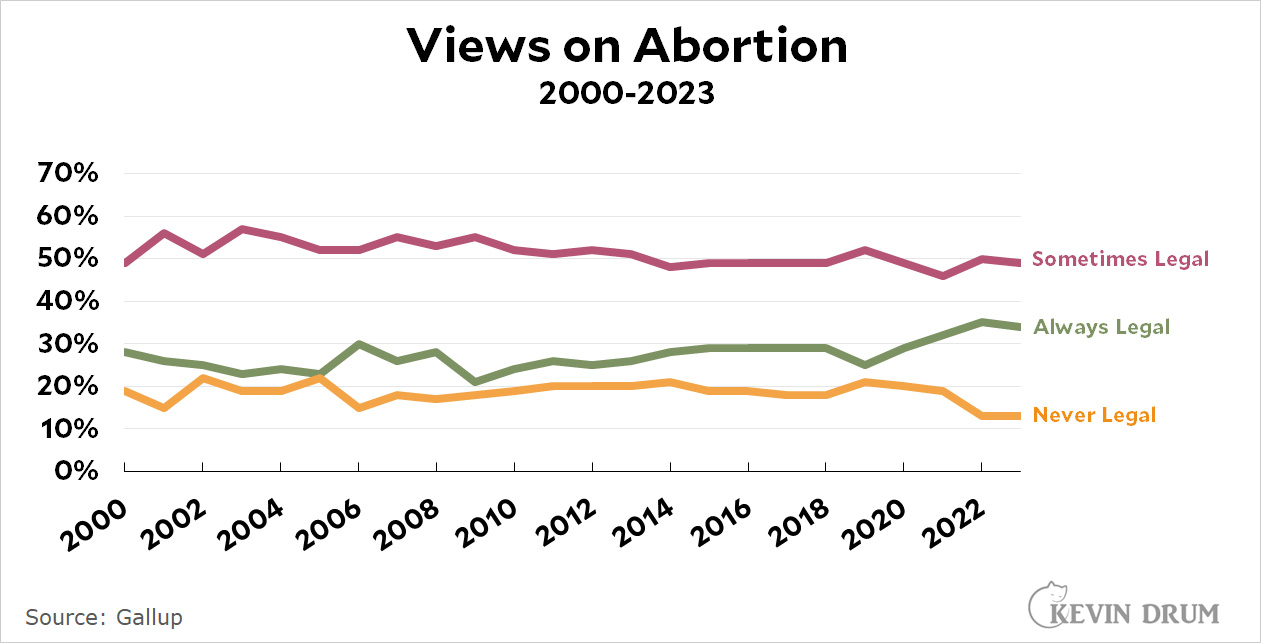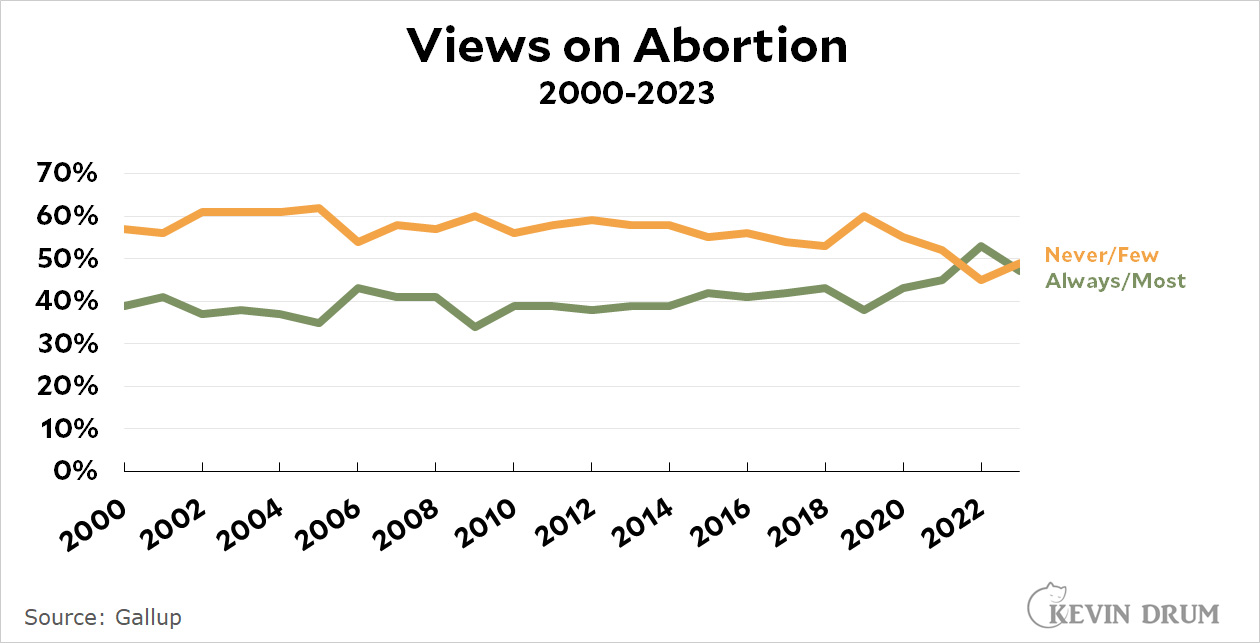You may recall that a couple of months ago a right-wing federal judge ruled that the Biden administration had been engaging in a "regime of mass censorship" straight out of 1984. This was all about the government's effort to fight social media disinformation in the areas of public health and election administration, and the judge's displeasure was largely triggered by his finding that "Flagged content was almost entirely from political figures [etc.]...associated with right-wing or conservative political views." As a result, he banned multiple agencies from any contact with social media companies that was intended to affect their moderation of deceitful content.
The 5th Circuit Court is also famously right wing, but on appeal even they couldn't stomach most of this, as the Washington Post reports:
Doughty’s decision had affected a wide range of government departments and agencies and imposed 10 specific prohibitions on government officials. The appeals court threw out nine of those and modified the 10th to limit it to efforts to “coerce or significantly encourage social-media companies to remove, delete, suppress, or reduce, including through altering their algorithms, posted social-media content containing protected free speech.”
The 5th Circuit panel also limited the government institutions affected by its ruling to the White House, the surgeon general’s office, the Centers for Disease Control and Prevention and the FBI. It removed restrictions Doughty had imposed on the departments of State, Homeland Security and Health and Human Services and on agencies including the U.S. Census Bureau, the National Institutes of Allergy and Infectious Diseases and the Cybersecurity and Infrastructure Security Agency.
The circuit court killed nine out ten prohibitions and six out of ten agencies from the original ruling. Still, the 5th Circuit is gonna do what the 5th Circuit is gonna do, so it found a way to uphold part of one prohibition on a few agencies who, they said, had adopted a "persistent and angry" tone in certain cases and had sent "intimidating" messages.
That's about it. And yet, the Post opined that this was "likely to be seen as victory for conservatives." I'm not sure where that comes from. A conservative court demolished a conservative ruling, keeping only a small part where they managed to divine coercion. And even that's pretty meaningless since it will be appealed to the Supreme Court.
But the right is louder than the left, and I imagine that "Biden censored conservatives!" will quickly make their Top Ten list. So I guess that makes it a victory for their side after all.





